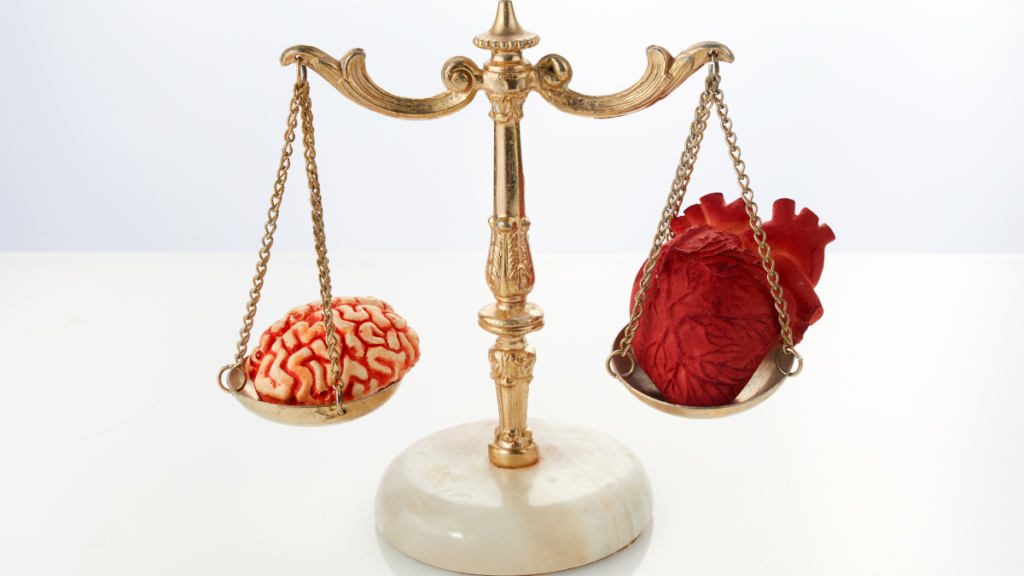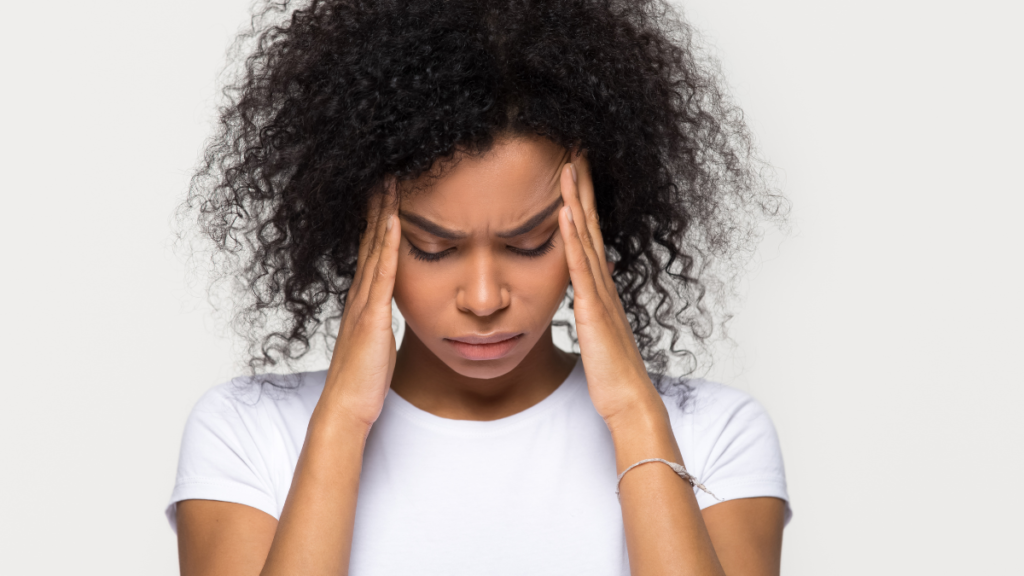Unlock joy and tranquility with our top 15 stress reduction techniques! Dive into a stress-free life with these powerful and uplifting strategies.

Table of Contents
Introduction to stress reduction
Stress is an essential part of life in today’s fast-paced, demanding world. Reducing stress is important for keeping your body and mind healthy. Stress that gets worse over time not only makes you feel bad, but it can also hurt your health and cause long-term problems like heart disease, anxiety, and sadness. Using stress-reduction methods is important if you want to live a balanced, healthy life and handle the challenges of everyday life well. Among these techniques are changes to your lifestyle, like getting more exercise and eating a healthy diet, and practices for your mental health, like mindfulness and meditation.
Learning the basics of stress reduction is the first step toward making your life happy and healthier. This guide tells you everything you need to know about stress, its negative effects, and effective ways to deal with it. Whether you’re dealing with stress at work or problems in your personal life, these methods can help you get back to a place of calm and control, which can lead to a better attitude and better health overall. With this information, you’ll be ready to face stress head-on, which will help you live a more peaceful and happy life.
Why Stress Reduction is Crucial
Importance of managing stress for physical and mental health.
Managing stress is important for keeping your body and mind in good shape. Stress can cause a number of health problems, such as heart disease, high blood pressure, and a weaker immune system. Chronic stress makes health problems worse, which makes them harder to treat and get better from. It also hurts your body’s most important systems, causing problems with sleep, appetite, and energy. This lowers the quality of your life and your general health.
Stress not only hurts your body, but it also has a big effect on your mental health. Stress that doesn’t go away can lead to anxiety, sadness, and other mood disorders that make it hard to enjoy life and do your daily tasks well. People who are stressed may become more irritable, have trouble focusing, and feel overwhelmed. This creates a bad cycle that makes stress levels even higher.
Stress needs to be dealt with and reduced if you want to live a healthy, happy life. Effective ways to deal with stress help break the cycle of stress, give comfort, and make you feel more in control and calm. Adopting ways to reduce stress can lead to better physical health, a better mood, better focus, and a more positive view of life, all of which can make you happier and help you live longer.
A brief explanation of what happens when stress is not properly managed
When worry isn’t handled well, it starts a chain reaction of physical and mental problems. Stress that isn’t handled well can cause irritability, worry, and fatigue at first, and then it can lead to more serious health problems like high blood pressure, heart disease, and being overweight. Chronic worry also weakens the immune system, which makes the body more likely to get sick or infected. Also, it changes the way people sleep, which can lead to insomnia and make mental health problems like depression and worry worse.
Notably, long-term worry has a big effect on mental health and lowers the quality of life. It gives people a constant feeling of helplessness and depression, which hurts their sense of self-worth and self-esteem. Also, stress that lasts for a long time makes it hard to focus, make decisions, and remember things. Without good ways to deal with stress, people may find it hard to handle everyday jobs and problems, which can lead to a cycle of more stress and worsening mental health.

Recognizing Stress: Signs and Symptoms
Identification of common stress symptoms
Recognizing stress signs early is a key part of managing and reducing stress effectively. Headaches, tight muscles, chest pain, feeling tired, and having trouble sleeping are all physical signs of worry. These signs are often your body’s way of telling you that you’re under too much stress. Stress can also change your hunger, making you eat too much or too little and causing your weight to go up and down. This is because stress affects your body’s metabolic processes.
Stress can also make you feel anxious, restless, unmotivated, or unable to concentrate. It can also make you feel a lot of sadness or depression. People who are stressed out may feel irritable and short-tempered and find it hard to calm down or clear their thoughts. This increased emotional sensitivity can cause problems in both personal and work relationships, which adds to the stress of everyday life.
Stress can make it hard to organize your thoughts, make decisions, and pay attention. Long-term stress makes it hard to remember things and can lead to constant worry and racing thoughts, which makes it hard to make good choices or get things done quickly. Understanding and recognizing these typical signs of stress is the first step toward reducing and managing stress effectively, which is important for your health and well-being as a whole.
How stress manifests physically and emotionally
Physical manifestations of stress:
Stress induces a myriad of physical responses as the body activates its “fight or flight” mechanism. Below are the common physical manifestations of stress:
- Headaches: Stress triggers tension headaches by causing muscles to contract, resulting in pain and stiffness.
- Muscle Tension and Pain: The body’s muscles tense up under stress, which can lead to discomfort or pain if sustained.
- Chest Pain: Stress can induce chest pain or palpitations, often mirroring symptoms of heart issues.
- Fatigue: Excessive stress levels often result in feelings of exhaustion and fatigue, even after adequate rest.
- Sleep Disturbances: Stress interferes with sleep patterns, leading to insomnia or restless, non-refreshing sleep.
- Gastrointestinal Problems: Stress adversely affects the digestive system, causing symptoms like nausea, an upset stomach, or diarrhea.
- Immune System Suppression: Chronic stress weakens the immune system, increasing susceptibility to infections and illnesses.
- Changes in Libido: Stress often leads to changes in sexual desire and performance.
Emotional Manifestations of Stress:
The emotional toll of stress is equally significant, affecting mood and mental health. Here are the common emotional signs of stress:
- Anxiety: Stress provokes feelings of apprehension and worry, culminating in anxiety or anxiety disorders over time.
- Depression: Chronic stress is a significant contributor to the onset of depressive episodes and major depressive disorder.
- Irritability: Stress leads to heightened sensitivity and irritability, making one prone to frustration and anger.
- Mood Swings: Stress induces unpredictable mood fluctuations, ranging from sadness to anger to anxiety, without apparent cause.
- Feeling Overwhelmed: Individuals under stress often feel besieged and unable to cope with life’s demands.
- Low Self-Esteem: Stress negatively impacts self-worth and confidence, making individuals feel insecure and inadequate.
- Lack of Concentration and Focus: Stress impairs cognitive functions, hampering the ability to concentrate and maintain focus on tasks.
Conclusion:
Understanding how stress manifests physically and emotionally is crucial for devising effective stress reduction strategies. Recognizing these symptoms early allows for timely intervention and prevention of further health complications, fostering a balanced and healthy life. Engage in stress reduction practices to mitigate these manifestations and promote overall well-being.
Understanding Stress
Definition of stress
Stress is the body’s and mind’s natural reaction to a demand or challenge. It can be both a motivator and a way to protect yourself. Stress is often seen as a bad thing, but in small amounts, it can improve performance and toughness. Stress triggers the body’s “fight-or-flight” response. Hormones like adrenaline and cortisol are released to get the body ready to deal with the stressor, whether it’s physical, emotional, or mental. This reaction causes changes in the body, such as a faster heart rate, deeper breathing, and more energy.
But worry that lasts for a long time or is too much can hurt your body and mind in many ways. Stress that lasts for a long time makes it hard for the body to deal with it, which can lead to anxiety, sadness, heart disease, weight gain, and other serious health problems. Because of this, it’s important to understand and deal with stress well if you want to stay healthy and happy overall. This makes stress-reduction methods an essential part of everyday life.
Distinction between eustress and distress
Eustress:
Definition: Eustress, often referred to as “positive stress”, is a form of stress that is beneficial and contributes positively to one’s feelings of fulfillment and life satisfaction.
Characteristics of Eustress:
- Motivational: Eustress serves as a motivational force, driving individuals to complete tasks, achieve goals, and overcome challenges.
- Short-term: Unlike distress, eustress is usually short-lived and specific to particular situations.
- Enhances Performance: It sharpens focus and improves performance, providing the energy and enthusiasm needed to accomplish tasks effectively.
- Positive Feelings: Eustress is often associated with feelings of excitement, fulfillment, and meaning.
Examples of Eustress:
- Preparing for a significant life event like a wedding or graduation.
- Working towards a promotion or undertaking a rewarding project.
- Engaging in exhilarating activities or hobbies that bring joy and excitement
Distress:
Definition: Distress is the negative form of stress, typically resulting from persistent, ongoing situations that make individuals feel out of control, anxious, or hopeless.
Characteristics of distress:
- Harmful: Long-term exposure to distress can lead to mental health issues, like anxiety and depression, and physical health problems, including heart disease and weakened immune function.
- Long-term: Distress often lingers, affecting various life aspects, including work, relationships, and health.
- Decreases Performance: Persistent distress hampers productivity, creativity, and the ability to think clearly or make decisions.
- Negative Feelings: It results in feelings of unease, despair, and unhappiness.
Examples of distress:
- Struggling with financial instability or job insecurity
- Dealing with chronic illness, either personally or within the family.
- Experiencing relationship breakdowns or social isolation.
Conclusion:
To deal with stress well, you must be able to tell the difference between eustress and worry. While eustress can be good for you and make you work harder, grief can be very bad for your physical and mental health. To live a healthy, peaceful life, it’s important to recognize and encourage eustress and find ways to reduce or deal with it. Stress-reduction techniques and strategies are an important part of this process because they help people handle life’s obstacles with ease and resilience.
Overview of the five stages of stress
Understanding Stress: Overview of the Five Stages of Stress
Alarm Stage: The alarm stage is the initial reaction when stress is identified, activating the body’s ‘fight-or-flight’ response.
Characteristics:
- Immediate Reaction: The body releases adrenaline, resulting in increased heart rate, blood pressure, and alertness.
- Preparation for Action: The physiological changes prepare the body to respond to the stressor effectively.
Resistance Stage: In the resistance stage, the body tries to restore balance while continuing to respond to the stressor.
Characteristics:
- Stabilization: Body’s defenses become mobilized to combat stress, aiming for stabilization.
- Adaptation: The body attempts to adapt to the stressor, with resources being deployed to handle stress.
Exhaustion Stage: If stress persists, the body’s resources and defenses are depleted, leading to the exhaustion stage.
Characteristics:
- Fatigue: Chronic stress leads to physical and mental fatigue.
- Health Decline: Prolonged stress at this stage can contribute to health problems, including depression, anxiety, and heart disease.
Recovery Stage: With adequate intervention and stress management strategies, the body begins to recover and repair.
Characteristics:
- Healing Process: The body starts healing from the physical effects of stress.
- Mental Recovery: Implementing stress management techniques aids in mental recovery.
Adaptation Stage: The adaptation stage is where the body becomes more resilient to stress after successful stress management.
Characteristics:
- Increased Resilience: The body and mind will become more resilient to similar stressors in the future.
- Learning Process: Individuals develop coping mechanisms and strategies to handle stress effectively.
Conclusion:
When you know the five stages of stress, you can better understand how it affects your body and mind at each step. For stress-reduction methods to work, they have to be used at the right time and in the right way. By doing this, people can deal with stress in a healthy way, which improves their sense of balance and well-being. It is important to learn how to deal with worry at every stage of life if you want to stay physically and mentally healthy, improve the quality of your life, and live longer.
Unveiling Stress Origins: Where Does Stress Come From?
Common sources of stress
Unveiling Stress Origins: Common Sources of Stress
Work-related stress: stress originating from job pressures, workload, workplace environment, or job insecurity.
Characteristics:
- Heavy Workload: Overwhelming amount of tasks and tight deadlines
- Lack of Control: Feeling powerless or lacking influence over job-related situations.
- Job Insecurity: Constant worry about job stability or future employment prospects.
Personal & Familial Stress: Stress derived from personal relationships, family dynamics, or personal life events.
Characteristics:
- Relationship strains: conflicts or strains within family, partnerships, or friendships.
- Parental Responsibilities: Stress from raising and providing for children
- Life Changes: Significant life events or transitions, like marriage, divorce, or the loss of a loved one.
Financial stress: stress resulting from monetary concerns, debts, or financial instability.
Characteristics:
- Debt: overwhelming debts and financial obligations
- Insecurity: Lack of financial security or uncertainty about the financial future.
- Expense Management: Struggling to manage or prioritize expenses effectively.
Health-Related Stress: stress induced by health issues, chronic diseases, or concerns about physical well-being.
Characteristics:
- Chronic Illness: Living with long-term health conditions
- Medical Expenses: Financial strain due to medical bills and healthcare costs
- Health Worries: Constant anxiety about personal or family members’ health.
Environmental stress: stress stemming from one’s surroundings, including housing conditions, community, or global issues.
Characteristics:
- Unsafe Living Conditions: Residing in areas with high crime rates or unsafe housing
- Noise and Pollution: Living in polluted or noisy environments
- Global and & Community Concerns: Anxiety about global crises, wars, or community-level problems
Academic stress: stress related to educational pursuits, exams, and academic performance.
Characteristics:
- Examination Pressure: Stress from preparing for and taking exams.
- Performance Expectations: Pressure to meet academic standards and expectations
- Future Career Anxiety: Worries about future career prospects and life after graduation.
Conclusion:
Finding and knowing the common causes of stress is the first step in managing and reducing stress effectively. With this information, people can come up with their own ways to deal with the different things that stress them out in their daily lives. By taking steps to deal with these sources of stress, you can improve your sense of power and well-being, which will lead to a healthier, more balanced life in the long run.
An explanation of why some individuals are more prone to stress
Because of their genes, personalities, and environments, some people are more likely to feel stressed than others. A genetic tendency toward anxiety and sadness can make a person more sensitive to stress. Things like pessimism, low self-esteem, and an inability to solve problems all have an impact on stress fragility. A person’s upbringing, exposure to traumatic events, and ongoing tough situations all have a big impact on their stress levels and make them more likely to feel overwhelmed.
Different types of personalities handle stress in different ways. For example, perfectionists and people with “Type A” personalities often feel more worry because they work hard and have high standards for themselves. Also, people with less social support, less money, and less access to health care are more likely to feel stressed. This shows that vulnerability to stress has many different aspects. To make individual plans for reducing and managing stress, it’s important to understand how these factors play a role.
First Steps in Handling Stress
Initiating stress reduction: recognizing and acknowledging stress
Recognizing stress is the first step to managing and reducing it in a healthy way. To figure out if you’re stressed, you have to pay attention to your body’s physical and mental signs, such as insomnia, anxiety, irritability, or fatigue. If you know these signs, you can take steps right away to relieve stress and stop it from getting worse and turning into chronic stress or a disorder caused by stress. Taking time to think about yourself and keeping track of your stress levels on a daily basis are both important for recognizing and dealing with stress at the right time.
To start reducing stress, you need to know that admitting you’re stressed isn’t a sign of weakness but a step toward mental health. When you’re stressed, it’s important to treat yourself without judgment. It’s important to be kind to yourself and remember that worry is a normal part of life that everyone goes through. When you recognize and accept your worry, you can deal with it better and find ways to reduce it that work for you.
The importance of proactive stress management
Managing stress in a proactive way is important for both mental and physical health. Being proactive means that you take steps to avoid stress instead of responding to it when it happens. This method gives people the tools they need to control their stress levels, which improves the quality of life as a whole. Practicing things like exercise, meditation, and healthy eating every day can help you become more resilient. This makes it easier to deal with stress when it comes up and promotes a feeling of balance and well-being.
Managing stress in a preventative way also helps you stay more focused, get more done, and have more energy. It helps you have a more cheerful outlook on life, which is very helpful when dealing with problems. Proactive stress management not only helps people deal with their current stress, but it also gives them the tools and techniques they need to deal with future stressors in a healthy way.

Top 15 Stress Reduction Techniques
- Mindfulness and Meditation: Meditation and being aware of the present moment help people deal with stress and concentrate better. People learn to live in the moment and enjoy it without judging it. Being mindful enables you to acknowledge and accept your thoughts and feelings without letting them control you. People meditate to calm down and get in touch with their bodies. These habits make it easier to deal with stress now and in the future. Mindfulness and meditation are ways to deal with stress. They help you stay mentally stable, concentrate better, and feel better.
- Physical Activity: Physical exercise lowers stress right away and in the long run. Endorphins are chemicals that are produced when you exercise regularly. They lower stress and make you happier. Physical exercise, like a brisk walk, a hard workout, or yoga, clears the mind and makes it easier to relax and feel refreshed. Regular exercise improves your health, sleep, and ability to deal with stress. It also makes you feel better right away. Everyone should work out daily because it is good for their body and mind and is one of the best ways to deal with stress.
- Healthy Eating: Eating well can help you deal with worry. Nutrient-dense foods are full of vitamins and minerals that help the brain work and keep hormones in order, which helps people deal with stress. Omega-3 fatty acids and antioxidants both help to lower inflammation and keep your mood stable. But jitteriness can be lessened by staying away from processed foods, sugary snacks, and drinks with caffeine. Having a well-balanced diet can improve both your physical and mental health. With this base, they will be better able to deal with stress and the challenges of life.
- Adequate Sleep: Getting enough sleep is essential for lowering stress and staying healthy in general. People get ready for the challenges of the next day by getting enough sleep. On the other hand, not getting enough sleep can make worry worse and lead to a cycle of feeling tired and anxious. Prioritizing good sleep hygiene, like keeping a regular sleep routine, making a comfortable place to sleep, and staying away from electronics before bed, can make a big difference in how well you sleep. Making sure you get enough restful sleep is important not only for your physical health but also for your mental health, as it improves your happiness, focus, and ability to deal with stress.
- Effective Time Management: Managing time well is a key part of reducing stress. By organizing jobs well, people can make a balanced schedule that fits their work responsibilities and their own needs. Learning to set realistic goals, put jobs in order of importance, and delegate when needed are all important parts of time management that keep you from feeling overwhelmed or burned out. Planners, calendars, and apps can help with organizing and keeping track of tasks. In the end, learning how to manage time lets people handle their busy schedules with ease and confidence. This reduces stress, boosts productivity, and improves the quality of both their personal and work lives.
- Social Support: Social support is a key part of dealing with stress. It’s crucial to feel like your friends and family respect and fit you when times are tough. People feel better because this support system gives them a safe place to talk about their worries. The help of people you care about can make things easier and make you feel better. Being with other people could also help you unwind and have fun. When you make these relationships a priority and keep them up, your mental health and ability to handle the stresses of life increase.
- Seeking Professional Help: When you talk to a therapist or psychologist, you can talk about what’s making you stressed and figure out how to deal with it. When worry gets too bad and causes anxiety, sadness, or other problems with your mental health, you should talk to an expert. Therapy gives you a safe place to talk about your worry and get advice from a professional. They help people fix problems, get rid of stress, and, if needed, get medication. Getting help from a professional isn’t a sign of weakness; it saves your mental health and makes it easier to deal with stress.
- Deep Breathing Techniques: Deep breathing can help relieve stress right away by making you feel calm and clear-headed. Deep, controlled breathing turns on the parasympathetic nervous system in the body, which makes you feel calm. Breathing techniques like diaphragmatic breathing, counting breaths, and box breathing can help you deal with stress in a variety of scenarios. By doing these things every day, you can improve your ability to deal with stress and your general emotional health in a big way. Deep breathing is one of the easiest ways to reduce stress. It can help relieve worry and stress right away, giving you a sense of peace and calm even when life throws you challenges and pressures.
- Yoga and Tai Chi: Ancient practices like yoga and Tai Chi help the mind and body work together in a way that reduces stress. Through body movements, breathing, and meditation, yoga helps you get more flexible, stronger, and more focused. Tai Chi is called “moving meditation” because the smooth, flowing movements and deep breathing help you relax and stay balanced. Both habits help people feel less anxious and more present and calm. Doing yoga or tai chi every day can help you feel less stressed, improve your health, and stay calm and focused when life gets hard.
- Limiting Caffeine Intake: Too much caffeine can make worry and anxiety worse, so cut back on how much you drink. Caffeine gives you more energy, but it also makes your cortisol level go up. High stress responses can cause jitters, heart palpitations, and trouble sleeping. You can stay relaxed and focused if you limit how much caffeine you drink or choose drinks without caffeine. If caffeine is used in moderation, it can improve attention and energy without hurting mental health or making stress worse. Take herbal drinks or water to calm down and feel better.
- Engaging in Creative Activities: Getting involved in creative activities is a unique way to relieve stress and show yourself. Painting, writing, making crafts, or making music are all ways that people can explore and share their feelings in a physical way. Creative work is a welcome distraction from stressors because it is so involved. This helps break the circle of constant worry and anxiety. Besides giving you a sense of success and joy, creative activities can help you get into a meditative state, which can help you feel calm and relaxed. Spending time on creative activities on a regular basis is a rewarding habit that is good for your mental health, helps you relax, and reduces your general stress.
- Positive Affirmations and Visualization: Using positive affirmations and methods for visualizing can help a lot with stress reduction. Positive affirmations are statements that help you challenge and get rid of negative and self-defeating thoughts. This helps you have a more positive outlook on life. Visualization is imagining a calm and peaceful scene or making goals and picturing yourself reaching those goals. These habits help people have a good attitude, feel less stressed, and feel better about themselves. By using affirmations and visualizations on a daily basis, people can develop a more positive outlook, deal with stress better, and feel more confident and ready to face challenges. This can lead to a more fulfilling and balanced life.
- Practicing Gratitude: Practicing gratitude is a powerful way to reduce stress, create a positive outlook, and improve overall health. By actively noticing and enjoying the good things in life, you can take your mind off the things that stress you out and feel more content and happy. Keeping a gratitude book or just thinking about the good things that happen every day can help you have a more grateful attitude and fight stress and negativity. This practice not only improves mood and mental health, but it also makes people more resilient, which makes it easier to handle hard situations with grace and optimism. Practicing gratitude every day is an easy but powerful way to increase positivity and reduce stress.
- Spending Time in Nature: Spending time in nature is a great way to relieve stress because it gives you a sense of calm and peace that is hard to find in busy cities. Parks, woods, and beaches are peaceful places in nature that offer a break from daily routines and responsibilities. This helps people relax and recharge. Exposure to nature landscapes has been shown to lower cortisol levels, lower blood pressure, and improve mood. Regularly doing things outside, like walks, hiking, or just sitting and enjoying nature, can make a big difference in mental health and well-being. Engaging with nature is a simple, easy way to reduce stress and maintain a healthy, balanced lifestyle.
- Setting Boundaries: Setting limits is an important part of reducing stress because it gives you more control over your time, energy, and mental resources. By setting clear limits, you can avoid overcommitting and stress and give yourself the time you need to take care of yourself and relax. Setting limits can help protect mental health and well-being in many areas of life, such as work, relationships, and social activities. Learning to say what you want and stick to it builds self-respect and understanding from others. This makes for a less stressful atmosphere where personal balance is a priority. Setting boundaries is a good way to live a happier, less stressed life in the long run.
Overcoming Specific Stress-Related Challenges
Strategies to calm oneself and prevent overthinking
To break the cycle of constant worry and stress, you need to work on being calm and stop yourself from overthinking. Deep breathing, meditation, or yoga are all ways to relax that can help calm a busy mind and help you concentrate. Physical movement is also helpful because it can release built-up tension and stress, which can clear the mind and make you feel better. Setting up a pattern of these things can give you a sense of control and stability, giving you the tools to handle stressful situations more easily and with more confidence.
Overthinking can also be stopped by rethinking negative ideas and focusing on the good. Doing things that require focus and attention can also take your mind off of stress and stop you from overthinking. Mindfulness techniques, which involve staying in the moment and giving your full attention to the here and now, can also be very helpful. Understanding that stress is normal and learning how to deal with it are important parts of maintaining mental health and well-being.
Solutions to handle stress-induced symptoms and conditions
Effectively dealing with stress-related symptoms and conditions takes a multifaceted approach that focuses on both short-term and long-term solutions. Acute stress can be relieved right away by practicing deep breathing, being physically active, or using relaxation methods. For chronic stress conditions, it’s important to make changes to your lifestyle, like eating healthy, getting enough sleep, and exercising regularly. Mindfulness and meditation techniques can also help you feel less stressed and improve your mental toughness.
It’s best to get professional help for stress-related conditions that make it hard to do things every day and lower the quality of life. Healthcare workers can help with stress-related symptoms and disorders by giving advice, support, and maybe even medication or therapy. Setting up a network of supporting friends and family and maybe joining a stress reduction or mindfulness group can also help and encourage you to deal with stress in a healthy way.

Integrating Stress Reduction into Daily Life
Practical tips for making stress reduction a daily habit
Integrating Stress Reduction into Daily Life: Practical Tips
Start Small: Incorporating stress reduction practices doesn’t require drastic changes. Start with small, manageable adjustments to your daily routine.
Tips:
- Dedicate a few minutes daily to deep breathing or meditation.
- Engage in short periods of physical activity regularly.
Create a Routine: Developing a daily routine that includes stress reduction practices can foster consistency and habit formation.
Tips:
- Schedule specific times for relaxation and self-care activities.
- Stick to your routine as closely as possible, making adjustments as needed.
Incorporate Physical Activity: Exercise is a proven stress reducer, promoting endorphin release and improving mood.
Tips:
- Include at least 30 minutes of moderate exercise most days of the week.
- Choose activities you enjoy to make exercise feel less like a chore.
Practice Mindfulness: Mindfulness enhances presence and focus, reducing anxiety and promoting calmness.
Tips:
- Engage in daily mindfulness exercises, even if only for a few minutes.
- Consider apps or online resources to guide your practice.
Utilize Relaxation Techniques: Techniques like deep breathing, yoga, or tai chi can aid in relaxation and stress reduction.
Tips:
- Incorporate these practices into your day, perhaps in the morning or before bed.
- Explore different techniques to find what works best for you.
Limit Exposure to Stressors: Reducing exposure to known stressors can significantly decrease stress levels.
Tips:
- Set boundaries with work and personal obligations.
- Limit consumption of news or social media if they contribute to your stress.
Cultivate Positive Relationships: Surrounding yourself with supportive, positive individuals can provide a stress buffer.
Tips:
- Invest time in relationships that bring joy and support.
- Seek out community groups or social activities that align with your interests.
Practice Gratitude: Acknowledging and appreciating positive aspects in life can shift focus away from stressors.
Tips:
- Keep a gratitude journal.
- Reflect on positive experiences and achievements regularly.
Conclusion:
For mental health and general well-being, it is important to make stress reduction a daily habit. If you use these tips in your everyday life, it will be easier for you to find good ways to deal with stress. With time and effort, these habits can become second nature, giving you a solid basis for dealing with life’s challenges and stresses in a calm and confident way.
Incorporating quick stress busters and technology to aid stress reduction.
On busy days, you can get quick relief from stress by taking deep breaths, going for short walks, or listening to soothing music. The goal of these techniques is to stop the stress reaction and give you a moment of calm and clarity. In the same way, technology can help you deal with stress. There are a lot of apps that can help you with guided meditations, relaxation methods, or keeping track of your mood. By using these digital tools, people get access to a wide range of resources that help them reduce stress, control their emotions, and practice mindfulness. This makes stress management easier and more available for everyone.
Also, it’s important to incorporate these quick ways to relieve stress and technology tools into your daily life. When it comes to building habits, consistency is key, so even on busy days, give these stress-relieving activities the most attention. With some practice and dedication, these quick stress relievers and tech tools can become your go-to ways to deal with stress and help you feel more balanced and well-balanced in your daily life. Adopting these habits will not only help relieve stress right away but will also help you learn how to deal with stress in the long run.
Conclusion
A recap of the importance and benefits of effective stress reduction
In today’s fast-paced world, it’s important for both mental and physical health to know how to deal with stress well. Managing stress on your own can improve your health, give you more energy, help you sleep better, and make you feel better all around. People who know how to deal with stress well also tend to be more focused, creative, and productive in their personal and work lives. The proactive approach to stress makes for a more balanced and satisfying life, builds resilience, and makes it easier and more confident to handle life’s challenges.
Using the stress-reduction techniques talked about in this blog can help you build a strong routine for dealing with worry. By using these ways regularly, people will not only feel less stressed, but they will also have the tools they need to deal with stress in the future. By making a commitment to reducing stress, people are making an investment in their long-term health and happiness and paving the way for a happier, more peaceful, and well-balanced life.

I encourage you to actively engage in stress reduction practices for a more balanced and peaceful life
Using stress-reduction techniques is a powerful way to improve your mental health and quality of life as a whole. Consistent attempts to deal with stress lead to big changes in emotional strength, focus, and energy. Each person’s routine for reducing stress is different, so we encourage users to look for, try, and stick with practices that work for them. Using stress management methods in your daily life makes a big difference in creating a more peaceful, balanced, and happy life.
Also, we encourage readers to share their success stories, insights, and problems with reducing stress. This will help build a supportive group of people who want to improve their mental health. You’re not the only one trying to figure out how to deal with stress well. There are a lot of people on the same path, and they’re all enjoying the deep, life-changing benefits of stress reduction methods. Let this common commitment inspire and motivate you as you work on making your life less stressful and more fulfilling.
Thank you, dear readers, for taking the time to read this post! Your journey towards a stress-reduced life is important to us. For more invaluable insights and practical tips, consider joining our newsletter. You’ll receive a steady stream of supportive and informative content to aid you in your stress reduction endeavors. Also, feel free to explore our other posts – each designed to equip you with the tools and knowledge to navigate life’s challenges with ease and grace. If you found this information helpful, please share it with friends, family, and colleagues. Sharing is caring, and you never know whose life you might touch with the gift of stress reduction. Let’s spread wellness, support, and tranquility together!
External Link
For further information, Please feel free to visit Wikipedia.

